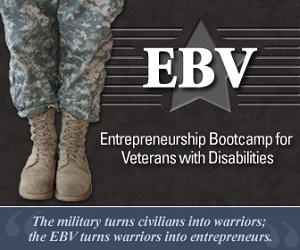By Debbie Gregory.
According to the Small Business Administration, veterans are 45% more likely to be self-employed than non-veterans. Veteran owned businesses are responsible for employing 5.8 million people and generating more than $1 trillion in revenue. That a trillion, with a “t.”
Over the next five years, is it estimated that more than 1 million men and women on active duty will return to civilian life. If the current trend holds, many of them will start their own businesses.
The business community and some government agencies are rallying to set these newest entrepreneurs up for success. Some examples of this are:
The Microsoft Software & Systems Academy is a bridge between serving in the U.S. military and creating technologies that improve lives.
“We already know that Veterans possess many of the hard work, strategic, problem solving skills to be successful,” said Chris Cortez, Vice President of Microsoft Military Affairs. “Whether they choose to start their own business or work for a large company, we want to support their desire to add new technology skills that they can turn into a long-lasting civilian career.”
The MSSA program is a full-time, 16 week, Information Technology (IT) job skills training program, for active duty US military service members who have received their separation date. Qualified participants are assigned to the MSSA program as their new place of duty and with successful completion, will be given the opportunity to interview at Microsoft for a full time position at Microsoft or one of our participating partners.
According to Cindy Bates, Vice President Microsoft U.S. Small Midsized Businesses, “It’s part of our corporate responsibility to assist in job creation by providing access to training, counseling and mentoring to help veterans embrace their entrepreneurial spirit and grow a small business.”
The SBA’s Boots to Business- ReBoot program is tailored for veterans who have already transitioned to civilian life, but have decided to pursue entrepreneurship.”
Another alternative is a business incubator, such as the Bunker. This program has been built by veteran entrepreneurs for veteran entrepreneurs. The Bunker targets existing veteran owned tech startups and aspiring entrepreneurs to come, create, and conquer the business world through their ideas, hard work, and strategy.
Perhaps one of these strategies will help you start up your business, or take your existing business to the next level.












